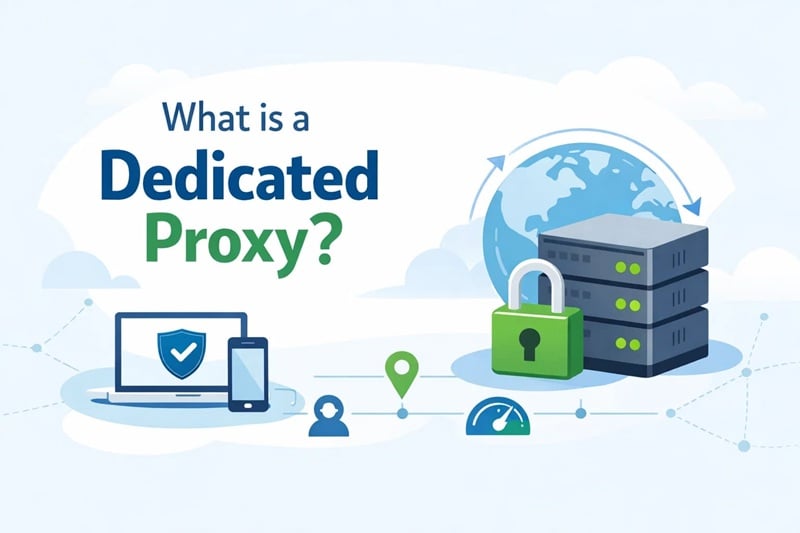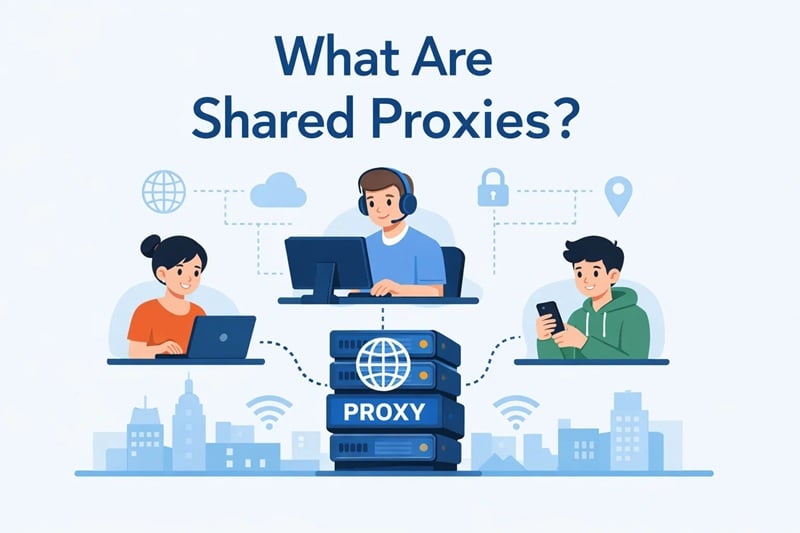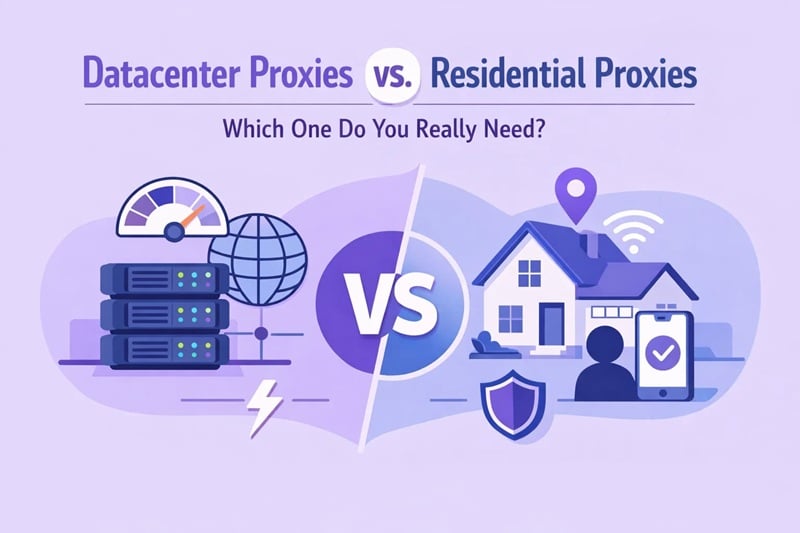揭秘爬虫代理, 2025年您需要了解的内容
1. 爬虫代理的定义
在网络抓取领域,爬虫代理发挥着关键作用。 但它们到底是什么? 从本质上讲,爬虫代理是位于网络抓取工具和目标网站之间的中间服务器。 该中间服务器充当盾牌,提供匿名性,并允许您访问网站并提取数据,而无需透露您的真实身份。 从本质上讲,它充当您和网络之间的桥梁,使网络抓取更加高效和谨慎。
网页抓取的重要性
网络抓取,即从网站自动提取数据,是一种功能强大的工具,可用于从市场研究到竞争分析等多种用途。 然而,它通常会带来某些挑战,包括 IP 阻止和验证码,这可能会阻碍抓取过程。 这就是爬虫代理发挥作用的地方。 它们是克服这些障碍的关键工具,使网络抓取工具能够不间断地收集数据。
它们如何工作的概述
要了解爬虫代理您启动网络抓取过程时,您的抓取工具会向目标网站的服务器发送请求。 但是,如果网站检测到来自单个 IP 地址的过多请求(网络抓取的常见迹象),它可能会阻止该 IP 或显示验证码以验证请求是否来自人类用户。
这就是爬虫代理站会看到代理的 IP 地址,而不是您的 IP 地址。 这会掩盖您的身份,并使其看起来好像有多个用户正在访问该网站,从而降低了被阻止或遇到验证码的可能性。
2. 爬虫代理的类型
爬虫代理有多种类型,每种类型都有独特的特征和用例。 在为您的抓取需求选择正确的代理时,了解这些类型之间的区别至关重要。 以下是主要类别:
住宅代理
住宅代理使用与真实住宅位置关联的 IP 地址。 它们模仿真实用户的行为,这使得它们对于需要真实性的网络抓取任务非常有效。
数据中心代理
另一方面,数据中心代理使用数据中心的 IP 地址。 它们通常比住宅代理更快、更便宜,但可能更容易被检测为代理。
移动代理
移动代理使用与移动设备和蜂窝网络关联的 IP 地址。 它们提供了高度的匿名性,对于特定于移动设备的抓取非常有价值。
轮换代理
轮换代理不断改变 IP 地址,使网站难以识别和阻止抓取活动。 它们是大规模刮削作业的热门选择。
3. 选择正确的爬虫代理
为您的特定任务选择最合适的爬虫代理对于确保网络抓取项目的成功至关重要。 您可以通过以下方式做出明智的决定:
设置代理的分步指南
确定您的抓取需求:确定抓取项目的规模、频率和地理要求。
选择代理类型:根据您的需求,选择适当的代理类型 - 住宅、数据中心、移动或轮换。
选择可靠的代理提供商:研究并选择可提供您所需代理类型的信誉良好的代理提供商。
配置您的抓取工具:设置您的网络抓取工具以通过所选的代理服务器路由请求。
流行抓取工具的配置选项
不同的网络抓取工具提供不同级别的代理集成。 熟悉您选择的工具中可用的代理配置选项,并根据您的需求进行定制。 Scrapy、Beautiful Soup 和 Selenium 等流行的抓取工具通常都有关于代理设置的大量文档。
4. 克服 IP 封锁和验证码
爬虫代理对于解决网络抓取过程中遇到的两个常见障碍是必不可少的:
代理如何帮助绕过 IP 封锁
网站采用 IP 阻止作为防御机制来阻止网络抓取工具。 通过使用代理,您可以将请求分发到多个 IP 地址,从而使网站难以识别和阻止您的抓取活动。 这确保了不间断的数据收集。
抓取时处理验证码的技术
网站通常会提供验证码来验证用户不是机器人。 爬虫代理可以帮助您在遇到验证码时切换到不同的 IP 地址,从而更有效地处理验证码。 此外,一些代理提供商提供验证码解决服务来简化流程。
5. 爬虫代理和数据隐私
虽然爬虫代理对于网络抓取来说非常有价值,但必须考虑道德和法律影响以及数据隐私问题:
抓取数据时要考虑的风险
网络抓取可能会侵犯网站的服务条款和隐私政策。 了解这些风险并确保您的抓取活动符合法律和道德标准至关重要。
保护用户数据并遵守法规
如果您的网络抓取涉及个人或敏感数据,则谨慎处理这些信息并遵守 GDPR 等数据保护法规至关重要。 爬虫配置和数据存储实践应优先考虑用户隐私。
6. 高级爬虫代理技术
为了最大限度地提高爬虫代理的有效性并扩展抓取操作,请考虑实施以下先进技术:
扩展爬虫操作的策略
负载平衡:跨多个代理服务器分发请求以处理大量数据。
会话管理:使用代理维护会话持久性,以导航需要登录或有状态交互的复杂网站。
请求标头自定义:自定义 HTTP 标头以模仿真实用户行为并减少检测机会。
代理轮换:实施自动代理轮换以实现 IP 地址多样化并避免检测。
监控和分析:使用代理监控工具来跟踪代理的运行状况和性能,确保抓取操作顺利进行。
总之,爬虫代理是网络抓取者不可或缺的工具,使他们能够克服 IP 封锁和验证码等挑战,同时保持数据隐私和法律合规性。 通过选择正确的代理类型并采用先进技术,网络抓取工具可以提高效率并成功提取数据。 然而,负责任且合乎道德地使用抓取代理对于确保对网络抓取生态系统产生积极影响至关重要。






















